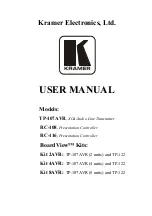
4 | Commissioning
FISCHER Mess- und Regeltechnik GmbH
14 / 32
BA_EN_DE49_0
4.3.3 Margin correction
The parameter
span
is used to correct the measuring range span. The current
measurement is shown. Using the arrow keys, this can be changed by up to
±10% of the basic measuring range. Keep the arrow keys pressed until the re-
quired value is shown.
4.3.4 Unit
The parameter
ein
is used to select one of the following units.
Value
Einheit
1
bar
2
mbar
3
PA
4
kPa
5
psi
6
inWc
If the support point table function is used, the measurement is shown without a
unit.
4.3.5 Setting the output signal
Within the basic measuring range (see type plate) the measuring range can be
modified using the parameters
ma
(measuring range start) und
me
(measuring
range end). Both values are adjustable across the entire basic measuring
range. The set values always refer to pressure (in the relevant measuring unit)
and are converted when the measuring unit is changed.
If the pressure signal oversteps the set values, this is shown on the display with
MAX
or
MIN
.
The difference between values
ma
and
me
must at least be 25 % of the basic
measuring range. The software does not allow any larger spreads (Turndown
4:1). If the range information is stated wrongly, you cannot leave the menu.
• If
ma
<
me
, the characteristic curve rises. The output signal grows as the
pressure increases.
• If
ma
>
me
, the characteristic curve drops. The output signal drops as the
pressure increases.
4.3.6 Output signal limits (NAMUR)
Regardless of the pressure, the three parameters
i g1
,
i g2
and
i er
define
the limit values for output signal that may not be undercut or exceeded.
These limit values take precedence over the range defined by the
ma
and
me
.
These parameters primarily serve to prevent error messages in downstream
systems caused by brief overstepping of measuring ranges.
The parameter
i g1
defines the limit value for the minimum output signal. The
output signal may not undercut this value.
The parameter
i g2
defines the limit value for the maximum output signal. The
output signal may not exceed this value.
The parameter
i er
defines the value for the error signal. The value defined via
the parameter
i er
, e.g. 3.8 mA, is issued if the device detects an internal error
and can no longer work correctly. However, not all possible errors and defects
can be detected by the device.















































